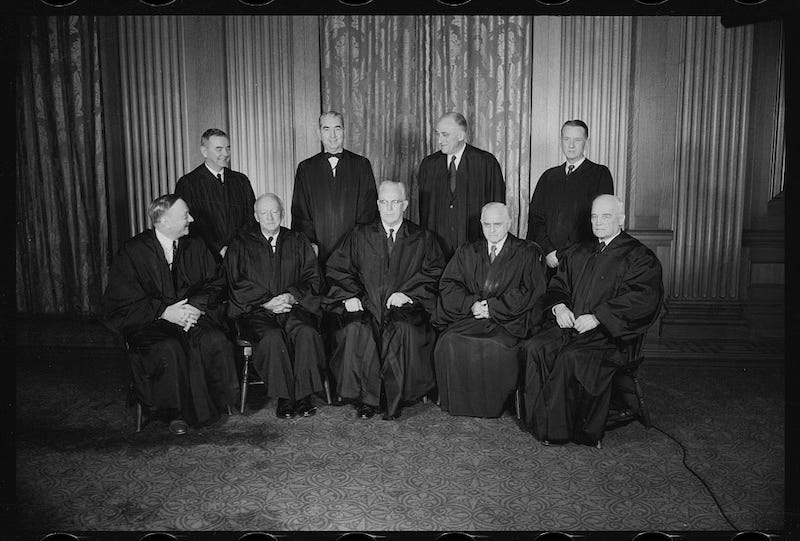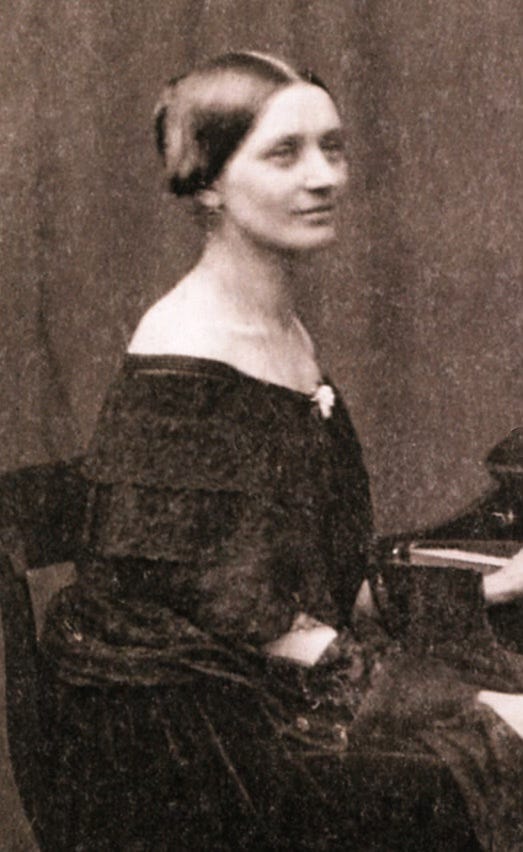This Day in Legal History: SCOTUS Rejects Challenge to Brown
On September 12, 1958, the U.S. Supreme Court issued a unanimous decision in Cooper v. Aaron, firmly rejecting a challenge by the State of Arkansas to the enforcement of Brown v. Board of Education. In the wake of Brown, which declared racial segregation in public schools unconstitutional, Arkansas officials sought to delay desegregation efforts in Little Rock, citing violent resistance and the need to preserve public order. The state's governor and legislature argued they were not bound by the Court’s ruling.
The Supreme Court rejected that claim unequivocally. In a rare decision signed by all nine justices, the Court reaffirmed the supremacy of the Constitution and the binding nature of its interpretations. It stated that the Constitution is the "supreme law of the land," and that the Court’s rulings are final and must be followed by all states, regardless of political disagreement or local unrest.
The ruling was a direct rebuke to Governor Orval Faubus, who had used the Arkansas National Guard to block the entry of nine Black students into Little Rock Central High School in 1957. President Eisenhower had responded by sending federal troops to enforce the desegregation order. Cooper v. Aaron underscored the federal judiciary’s power to enforce constitutional rights, even in the face of open defiance by state authorities.
The Court's opinion in Cooper was a pivotal moment in the civil rights movement, signaling that federal law could not be nullified by state action. It also clarified that resistance to judicial decisions, especially on constitutional matters, was itself unconstitutional. By reasserting its own authority and that of the federal government, the Court helped ensure that desegregation would proceed, however slowly, across the South.
Senate Republicans pushed through a rule change aimed at speeding up the confirmation of President Donald Trump’s executive-branch nominees. In a 53-45 vote, the GOP majority limited the ability of Senate Democrats to slow the process, allowing groups of nominees to be confirmed together rather than individually. The change does not apply to Cabinet heads or federal judges.
Senate Majority Leader John Thune defended the move, saying the chamber was being bogged down by procedural delays. In contrast, Democratic Senator Adam Schiff warned the rule change weakens institutional checks on presidential power, calling it a further erosion of Senate independence. Senate Democratic Leader Chuck Schumer criticized it as enabling a “conveyor belt of unqualified nominees.”
This is the third significant alteration in 12 years to Senate rules that weaken the minority party’s influence, a trend that began with Democrats in 2013 and continued under Republicans in 2017. Critics argue the Senate is drifting away from its traditional role as a stabilizing body in the legislative process. The first group of Trump nominees could see expedited confirmation as early as next week. Stephen Miran’s Federal Reserve nomination will proceed under the prior rules.
US Senate loosens rule to speed confirmation of some Trump nominees | Reuters
A federal judge in Seattle issued a nationwide injunction blocking the Trump administration from enforcing a policy that would have barred undocumented children from enrolling in Head Start, a federal preschool program for low-income families. Judge Ricardo Martinez ruled that the U.S. Department of Health and Human Services (HHS) lacked the authority to impose immigration-based restrictions on access to Head Start, criticizing the agency for failing to follow proper rulemaking procedures.
The decision followed a similar ruling one day earlier from a federal judge in Rhode Island, which halted the policy in 21 Democratic-led states and the District of Columbia. The Seattle lawsuit was brought by Head Start associations from Illinois, Pennsylvania, Washington, and Wisconsin, along with two parent advocacy groups. They challenged a July directive that expanded the interpretation of the 1996 Personal Responsibility and Work Opportunity Reconciliation Act (PRWORA) to include Head Start among programs limited to legal residents.
Since 1998, HHS had interpreted the law as not applying to non-postsecondary education programs like Head Start. Judge Martinez stated that Congress had effectively endorsed that interpretation by not altering the law and had even broadened access to Head Start over time. Despite recent limits by the U.S. Supreme Court on nationwide injunctions, Martinez justified his decision as necessary to provide uniform relief.
Trump policy barring migrants from Head Start blocked nationwide | Reuters
The U.S. Department of Justice filed a lawsuit against Uber Technologies, accusing the company of violating the Americans with Disabilities Act (ADA) by discriminating against riders with disabilities. Filed in federal court in San Francisco, the complaint alleges that Uber drivers have routinely denied rides to passengers who use service animals or wheelchairs, and sometimes insulted or mistreated them.
The DOJ claims that Uber also imposed illegal fees on disabled riders, including cleaning charges for service animals and cancellation fees for rides that drivers refused to complete. The lawsuit details incidents involving 17 individuals, such as a 7-year-old amputee denied a ride due to his wheelchair, a veteran with a service dog who missed a flight after being refused service, and a blind man in New Jersey whose ride requests were repeatedly canceled.
The government is seeking an injunction to stop further violations, mandatory improvements to Uber’s policies and training, monetary damages for those affected, and a civil penalty. In response, Uber denied the allegations, stating it has a zero-tolerance policy for discrimination and is committed to accessibility and inclusion for riders with disabilities.
US sues Uber, alleges discrimination against disabled riders | Reuters
We’ll see you back here on Monday and, until then, note. We like to close out the week of shows with a featured musical piece. That will make these Friday episodes seem especially long. We hope you’ll stick it out and enjoy the featured piece but, if music – specifically classical music – isn’t your bag, we get it. Our mouth sounds unrelated to the week’s closing music ends here.
This week’s closing theme is by Clara Schumann.
This week’s closing music features a brilliant piece by Clara Schumann, a composer, pianist, and musical force whose work was often overshadowed by the men around her—most notably her husband Robert Schumann and close friend Johannes Brahms. Yet Clara was a prodigy in her own right, performing across Europe and composing with a clarity and emotional depth that demanded attention in a male-dominated 19th-century musical world.
Her Scherzo No. 2 in C Minor, Op. 14, written in 1845, is a striking example of her compositional voice—bold, technically challenging, and emotionally complex. The piece opens with stormy, rapid-fire passages that give way to more lyrical interludes, showcasing Clara’s mastery of contrast and dramatic pacing. It’s music that demands virtuosity but also rewards listeners with its structural elegance and passionate energy.
As you listen, consider how Clara’s work stood alongside—and at times surpassed—that of her more famous peers. Her Scherzo No. 2 is not just a curiosity from a historical figure, but a work of enduring artistic merit that more than earns its place in the canon.
Without further ado, Clara Schumann’s Scherzo No. 2 in C Minor, Op. 14, enjoy!














